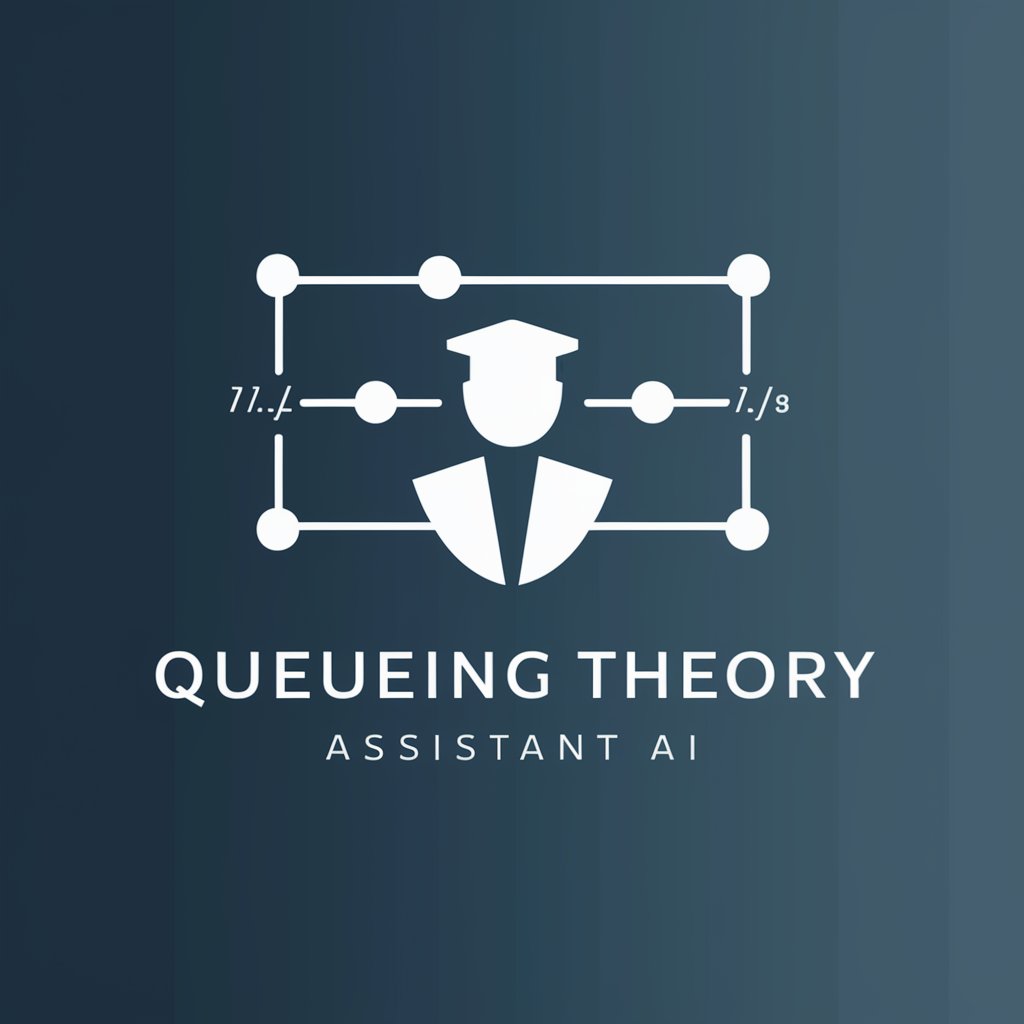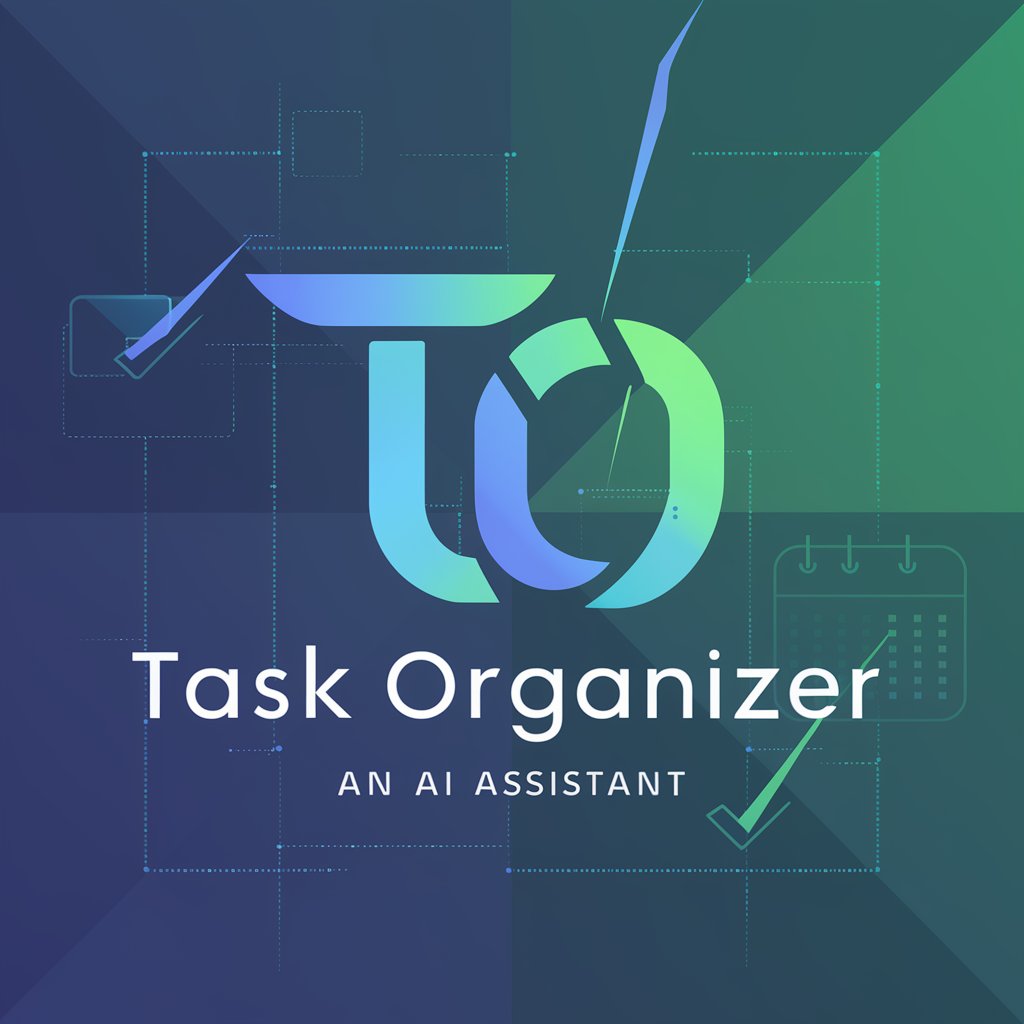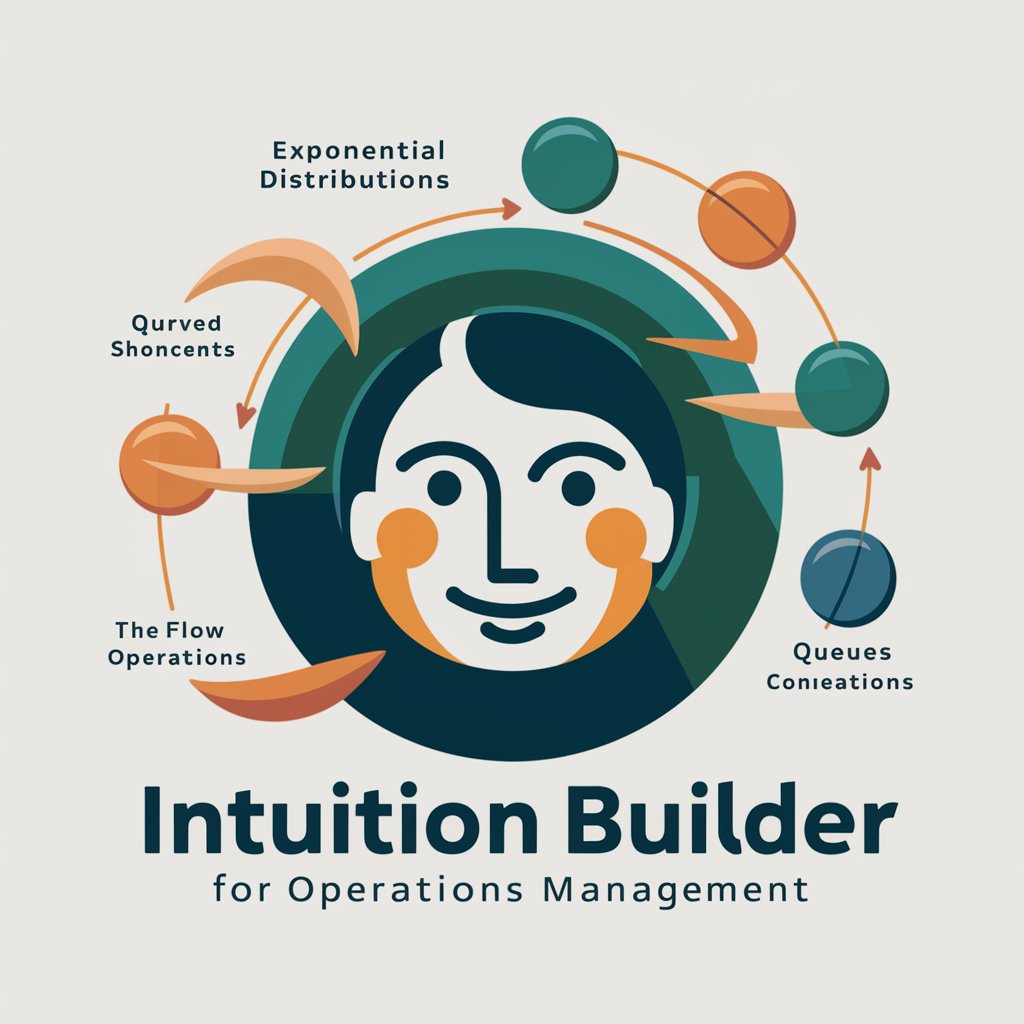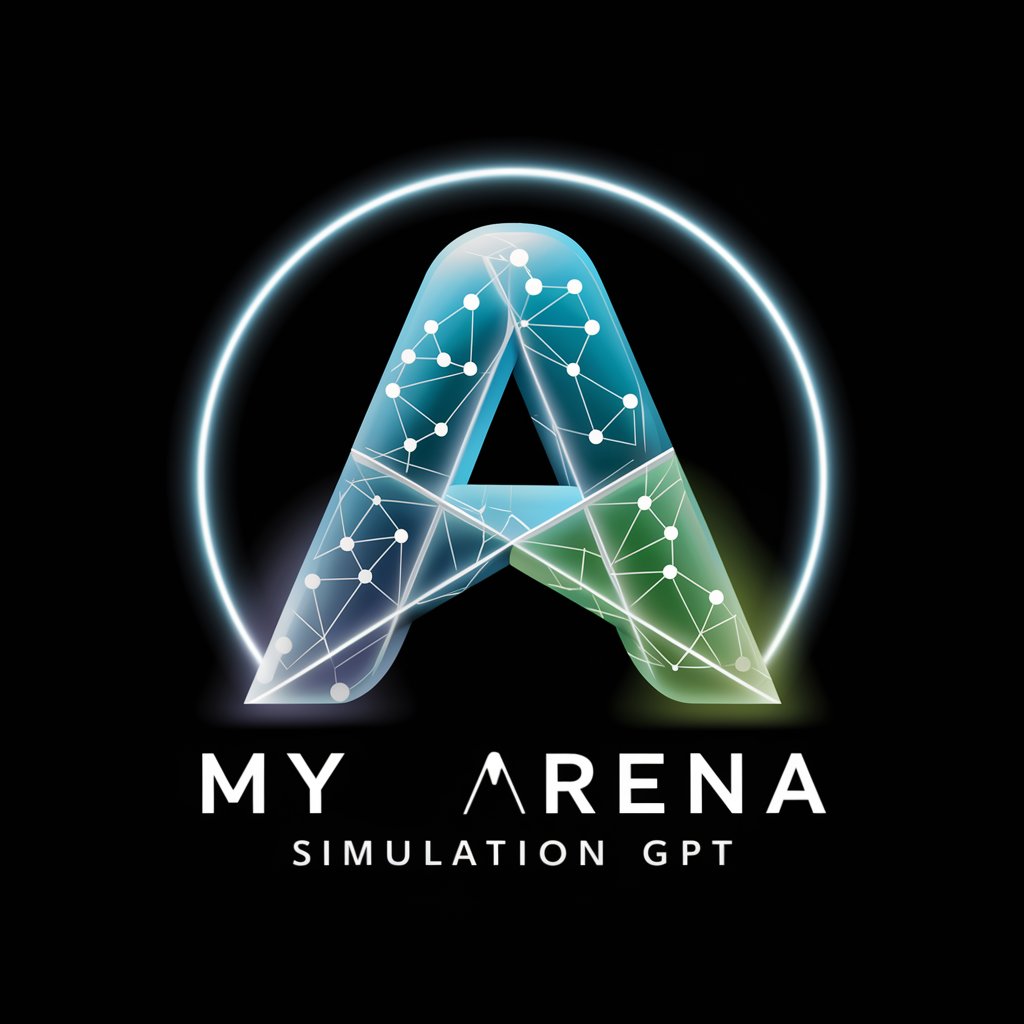
Queueing Theory Assistant - Queueing Theory Expertise

Welcome to the Queueing Theory Assistant. How can I assist you today?
Demystifying queueing theory with AI-powered assistance.
Can you explain the basic concept of the M/M/1 queue?
How do you calculate the average waiting time in a queue?
What are the key assumptions of the M/G/1 queue model?
Can you solve an example problem involving an M/D/1 queue?
Get Embed Code
Introduction to Queueing Theory Assistant
Queueing Theory Assistant is designed as an advanced tool to address all aspects of queuing theory, offering insights grounded in 'Fundamentals of Queueing Theory' by Shortle, 2018 edition. It excels in both explaining basic concepts and solving complex queuing problems. This tool is adept at providing accurate, detailed responses, ensuring precision by seeking clarifications on ambiguous queries. It's programmed to maintain a professional, informative tone, suitable for academic and research discussions, and informs users about the scope or limitations of its expertise. Powered by ChatGPT-4o。

Main Functions of Queueing Theory Assistant
Explain Basic Concepts
Example
Definitions of key terms in queueing theory, such as 'service discipline', 'Little's Law', or 'Markovian queues'.
Scenario
Ideal for beginners or individuals new to the field, seeking foundational knowledge.
Solve Advanced Problems
Example
Analyzing complex queue models, calculating performance metrics like average queue length or waiting times using mathematical or simulation techniques.
Scenario
Useful for researchers or professionals involved in optimizing service operations in industries like telecommunications, manufacturing, or customer service.
Educational Resource
Example
Providing in-depth explanations on the applications of queueing theory across various real-world scenarios.
Scenario
Beneficial for students and educators in courses covering operations research, computer science, or industrial engineering.
Modeling and Simulation Guidance
Example
Guidance on using software tools for queueing theory simulation, like QtsPlus, to model complex queueing systems.
Scenario
Helpful for engineers and IT professionals tasked with designing efficient queueing systems for data processing or customer service platforms.
Ideal Users of Queueing Theory Assistant Services
Academic Researchers
Scholars focusing on operations research, logistics, or industrial engineering can leverage this tool for cutting-edge research, aiding in the development of new theories or optimization of systems.
Industry Professionals
Professionals in logistics, manufacturing, telecommunications, and service industries can utilize the tool for designing more efficient queueing systems, enhancing customer satisfaction and operational efficiency.
Students and Educators
An invaluable educational resource for those studying or teaching courses related to operations research, providing clear explanations, problem-solving capabilities, and examples to facilitate learning.
Software Developers
Developers working on applications involving queueing, such as network traffic management or cloud resource allocation, can benefit from the tool's insights for creating more robust and efficient systems.

How to Use Queueing Theory Assistant
1
Start by accessing a trial on yeschat.ai, where you can explore Queueing Theory Assistant without the need for a login or a ChatGPT Plus subscription.
2
Familiarize yourself with the basics of queueing theory or specific topics you're interested in by consulting 'Fundamentals of Queueing Theory' by Shortle, 2018 edition, as this tool is designed to align with the concepts and problem-solving techniques presented there.
3
Pose your question or problem clearly, specifying if it pertains to basic definitions, system analysis, model application, or advanced problem-solving within the realm of queueing theory.
4
For complex inquiries, break down your question into smaller, more manageable parts. This approach can help clarify the premise of your problem and ensure a comprehensive response.
5
Utilize the provided examples and discussions as a guide for applying queueing theory concepts to your own questions or problems, enhancing your understanding and ability to tackle similar challenges.
Try other advanced and practical GPTs
What's your Queue
Discover. Rate. Watch. An AI-powered cinematic journey.

Keyword Analysis
Empower Your SEO and PPC with AI-Driven Analysis

Keyword Explorer
Unlock SEO Potential with AI

Keyword Strategist
Empowering Your SEO with AI

Stock Keyword Creator
Empower your images with AI-driven keywords.

Keyword Scanner
Unlock SEO strategies with AI-powered analysis.

Task Organizer
Optimize Your Day with AI-Powered Task Prioritization

RabbitMQ and Celery
Empowering real-time, scalable task processing with AI.

Intuition Builder for Operations Management
Unlock Efficiency with AI-Powered Operations Insights

Cart Rescuer
Reviving Lost Sales with AI

Cart Abandonment Resolver
Revive lost sales with AI-driven insights

Shopping cart
AI-Powered Creativity and Analysis

Detailed Q&A about Queueing Theory Assistant
What is Queueing Theory Assistant?
Queueing Theory Assistant is a specialized tool designed to offer comprehensive assistance on all aspects of queueing theory. It helps users understand basic concepts, solve advanced problems, and apply queueing theory to various real-world scenarios, based on the 'Fundamentals of Queueing Theory' by Shortle, 2018 edition.
How can Queueing Theory Assistant help me with my research?
It can assist by providing detailed explanations of queueing theory concepts, methodologies for analyzing queueing models, and guidance on how to apply these models to solve complex problems in your research. It can also help clarify advanced topics and suggest appropriate models or techniques for specific scenarios.
Can I use Queueing Theory Assistant for educational purposes?
Absolutely. It serves as an excellent resource for students learning about queueing theory, offering clear, detailed explanations of principles, problem-solving strategies, and examples that are aligned with educational content from the 'Fundamentals of Queueing Theory' textbook.
Is Queueing Theory Assistant suitable for solving real-world problems?
Yes, it is designed to apply queueing theory concepts and models to analyze and solve problems encountered in various industries such as telecommunications, service operations, and manufacturing, providing insights into system performance and optimization.
How advanced is the knowledge base of Queueing Theory Assistant?
The knowledge base encompasses a wide range of topics from basic queueing theory to advanced analytical techniques, ensuring users can find detailed answers and solutions for both fundamental and complex queueing problems.





